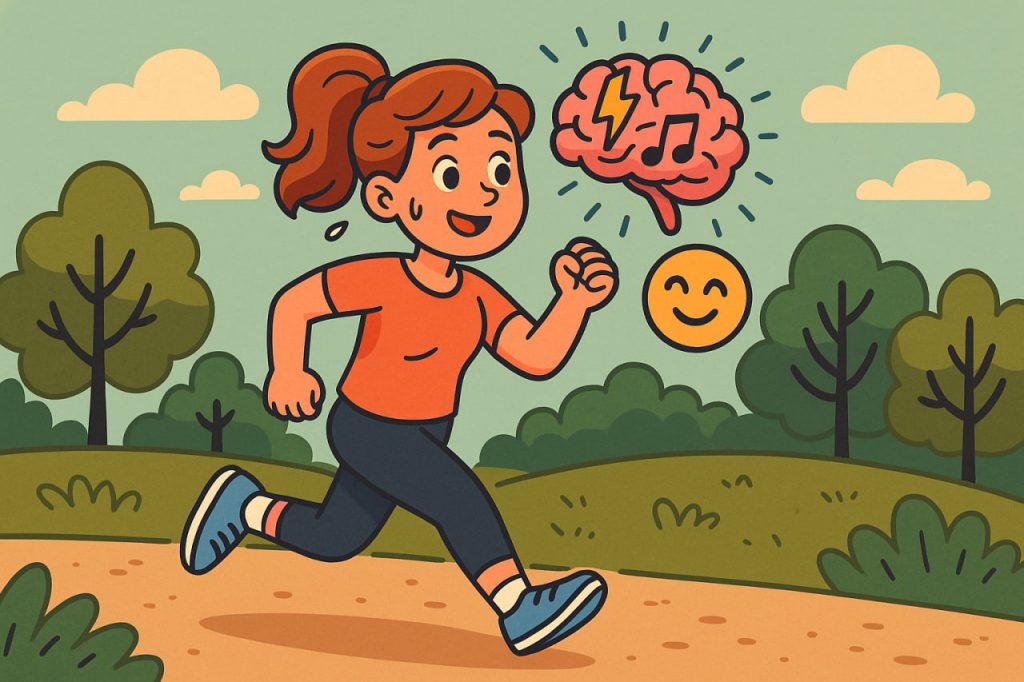Physical activity benefits not only the body but also the brain. When we exercise, our nervous system, hormones, and blood flow change in ways that directly affect mood, memory, and cognitive performance. Scientists have found that regular movement stimulates brain plasticity, making the mind sharper and more resilient.
Increased Blood Flow and Oxygen Supply
During exercise, the heart pumps more blood, delivering extra oxygen and nutrients to the brain. This improves brain function, increases alertness, and supports the growth of new neural connections. Better circulation also helps remove waste products, keeping brain cells healthy.
Release of Neurotransmitters
Physical activity stimulates the release of endorphins, known as “happiness hormones,” which elevate mood and reduce pain perception. Other neurotransmitters, such as dopamine and serotonin, improve motivation, focus, and emotional stability. This explains why many people feel energized and uplifted after a workout.
Neuroplasticity and Memory
Exercise promotes neuroplasticity—the brain’s ability to form new connections. It also increases the production of brain-derived neurotrophic factor (BDNF), a protein that supports neuron growth and strengthens memory. Studies show that regular exercise improves learning ability and reduces the risk of age-related cognitive decline.
Stress Reduction
Physical activity reduces levels of cortisol, the stress hormone. At the same time, it boosts relaxation and resilience, helping the brain cope better with everyday challenges. This makes exercise an effective natural tool against anxiety and stress-related disorders.
Impact on Long-Term Brain Health
Regular exercise helps protect against neurodegenerative diseases like Alzheimer’s and Parkinson’s by improving blood supply, reducing inflammation, and supporting brain repair mechanisms. It also enhances sleep quality, which is essential for memory consolidation and brain recovery.
Conclusion
The brain responds to physical exercise by improving blood flow, releasing mood-enhancing chemicals, strengthening memory, and lowering stress. Regular activity not only sharpens thinking but also protects long-term mental health. Exercise is not just a workout for the body—it is also one of the most powerful tools for maintaining a healthy brain.
Glossary
- Neuroplasticity – the brain’s ability to adapt and form new neural connections.
- Endorphins – neurotransmitters that create feelings of happiness and pain relief.
- Dopamine – a chemical that regulates motivation and reward.
- BDNF (Brain-Derived Neurotrophic Factor) – a protein that supports neuron growth and memory.
- Cortisol – a hormone released in response to stress.


